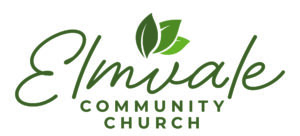I believe that we will be forced to live wisely and simply if allow generousity to shape our budget. If generousity is a priority of God’s and if what we have has been given to us by Him, then we should add generousity to our monthly budget.
Giving in Scripture has always been talked about in terms of first fruits. Basically speaking, whenever a harvest was gathered, the first and the best of the harvest was always given to God.
This week we are going to look at WHERE Christians should give… Who do we entrust with what God has entrusted to us?
Most people in our day and age give to causes that they are passionate about, and let me tell you, there are some weird causes out there…
God trusts us with His resources to channel every dollar to the right place, to please Him because ultimately, He is the source of all we have…
The New Testament outlines three places where a Christian should direct their generosity: The Church, the Poor, and the Gospel…
God owns it all, but He entrusts it to us. And God has some specific expectations with how we should steward what God has entrusted us with. God trusts us with His resources to channel every dollar to the right place, in order to please Him.
Whatever God has called and gifted you to do, your responsibility is to do it to the best of your ability knowing that you are serving God and accountable to Him. Don’t fall into the error that Martha fell into… pressuring someone away from their obedience to God because of socio-cultural expectations or theological interpretation.
If we trust Jesus’ vision of abundance, and God as our Father-Provider. Then His teachings on money start to make sense and we become free to be generous with what we have. Otherwise Jesus’ teachings about money sound illogical and unhinged. And generousity sounds not only foolish, but dangerous.
We live with a nagging sense that we never have enough. We never have enough hours in the day, stuff in our house, or money in the bank. We always need a bit more. Contentment is always just beyond our reach. But it’s a false promise. Money and stuff can’t give us security and satisfaction in our hearts. Most of Jesus’ teaching about money do not come as a rule, but as warnings or statements of reality. He didn’t give us guidelines about how much is too much – I think He understood that each of our hearts has a different capacity for greed. Jesus understood that money and possessions can become a form of rival god and move us away from Kingdom.
Do you truly have faith in God if He has to operate on your terms? Instead of having faith in God, you actually have faith in your own hope or understanding about Him. We can’t allow our trust in our understanding disguise itself as trust in God because as soon as He operates outside our understanding, we assume that He has failed. Sometimes when doubt or disappointment has taken root in our hearts, we can’t even see the provision of God right in front of us.
The service is modelled around a 12th century Good Friday tradition called the Tenebrae, which means the service of shadows. This will be a responsive reflection on Christ’s last moments, His abandonment by His disciples and will end with His last words on the cross. As we progress through the night, candles will be extinguished to illustrate the loneliness and the darkness that faced Jesus’ soul as His followers abandoned Him and as He faced becoming the sacrifice for our sins.
It’s okay to be wrong about some elements of our faith, because right thinking doesn’t save us. What saves us is our trust in God who stands outside the realm of human understanding and reason… We don’t want to trust our beliefs rather than trusting God…
